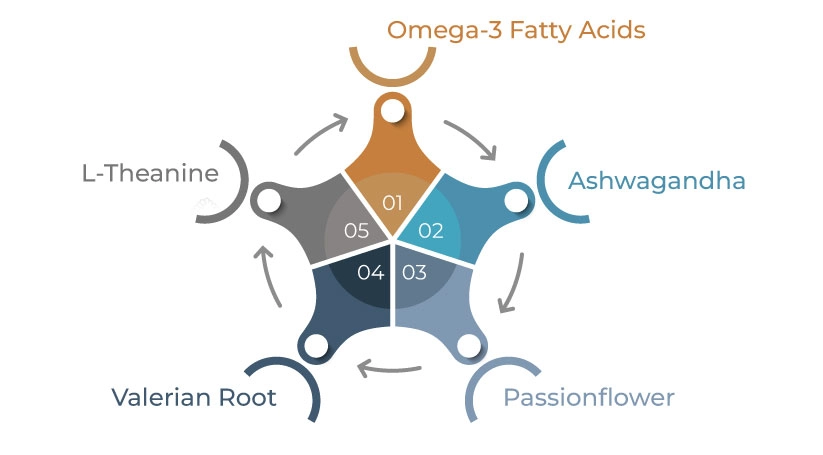
Over-the-Counter Supplements for Anxiety: Exploring Natural Remedies

In today’s hyperconnected world, where social interactions play a significant role, it is crucial to recognize and understand social anxiety disorder—a condition that affects millions of people worldwide. Social anxiety disorder, often misunderstood as shyness or introversion, goes beyond mere discomfort in social situations. This blog post aims to shed light on this debilitating condition, providing insights into its causes, symptoms, and available treatment options.
In this article, we will delve into some common OTC supplements believed to have anxiety-reducing properties and discuss their effectiveness and safety.
Omega-3 Fatty Acids:
Ashwagandha:
Ashwagandha, an ancient herb used in Ayurvedic medicine, is gaining attention for its potential anxiolytic effects. Studies suggest that its active compounds may reduce cortisol levels, a stress hormone linked to anxiety. However, it may interact with certain medications, so consulting a healthcare professional is essential, especially for individuals with pre-existing medical conditions.

Passionflower:
Valerian Root:
Used for centuries as a natural sedative, valerian root may help reduce anxiety symptoms by supporting better sleep quality. It appears to enhance the effect of GABA, promoting relaxation. However, it can cause drowsiness, and long-term usage may lead to dependency, so it is best used under professional guidance.
L-Theanine:
L-Theanine is an amino acid found in green tea, known for its calming effects. It is believed to increase serotonin, dopamine, and GABA levels in the brain, promoting relaxation without drowsiness. While generally safe, it is advisable to moderate caffeine intake as it may counteract L-Theanine’s calming effects.



